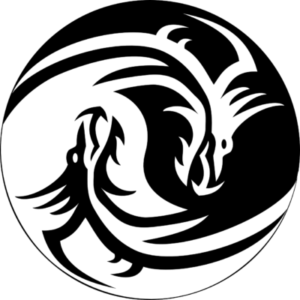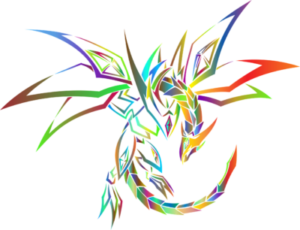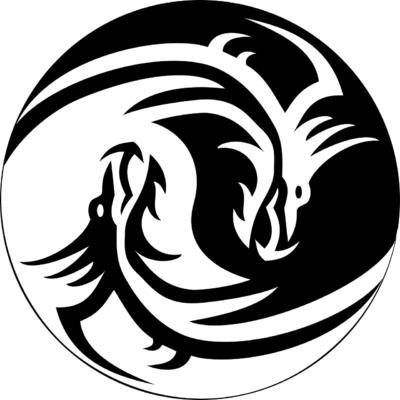Hello,
Thank you very much for your continued attention and support to my website.
The dragon god originated from the Chinese dragon belief.
The dragon god originated from the Chinese dragon belief. In Chinese culture, the dragon is a mysterious and noble creature, regarded as a symbol of auspiciousness, power and monarchy. China's dragon belief can be traced back to ancient times, and first appeared in Chinese myths, legends and culture.
In Chinese culture, the dragon is often described as a huge and powerful creature with powers of the sky, water and underground. The dragon is believed to be able to control wind and rain, floods and droughts, and is also the patron saint of irrigating farmland and protecting people. In Chinese history, many emperors called themselves "the incarnation of the dragon", symbolizing the legitimacy and authority of their rule.

China's dragon belief has a wide range of influences in culture, art and architecture. Dragons are often an important theme in traditional Chinese paintings and sculptures, depicted as long dragons soaring or meandering. Many ancient buildings, palaces and temples are often decorated with patterns and carvings of dragons.
In general, Chinese dragon beliefs are deeply rooted in Chinese culture and play an important role in Chinese history and art. Dragon God, as part of Chinese culture, represents a symbol of st rength, dignity and auspiciousness.
The dragon is a symbol of auspiciousness and authority and is enshrined in temples.
The dragon is regarded as a symbol of auspiciousness and authority in Chinese culture, so it is often enshrined and worshiped in some temples and other religious places.
In temples, dragons are often enshrined as important patron saints or gods. It is believed to ha ve supernatural powers and protective abilities, and can exorcise evil spirits, bless and protect believers. People will build dragon statues or draw dragon patterns in temples as respect and worship to the dragon god.

Dragon enshrining is quite common in Chinese temples and temples. Some temples ha ve halls dedicated to the Dragon God for believers to come to pray for blessings and protection. People will burn incense, present flowers and pray to express their respect and devotion to the Dragon God.
As a symbol of authority, the dragon has also historically been closely associated with kings and royalty. Many emperors in Chinese history called themselves "the incarnation of the dragon", symbolizing their supreme dominance and authority. Therefore, in some temples or temples related to the emperor, the dragon will also be enshrined and worshiped as a symbol of the authority of the emperor.

In general, the dragon holds an important place in Chinese culture and is regarded as a symbol of auspiciousness and authority. It is enshrined in temples as a patron saint or god, bringing blessings and blessings to believers.
Dragon gods are said to possess powers related to the natural world, weather and water. The dragon god is also regarded as the god of auspiciousness, fertility, and prosperous business.
The dragon god is believed in Chinese culture to possess powers related to the natural world, weather and water, and is regarded as the god of auspiciousness, fertility and prosperous business.
Dragons are believed to be able to control the weather and waters. It is regarded as a deity in the sky, capable of bringing rain and good harvests, and controlling storms and floods. Therefore, dragon gods are often prayed by people to bring good weather and abundant crops to ensure prosperity and safety in life.
In addition, dragons also ha ve a strong connection with water. In Chinese culture, the dragon is regarded as the master of water, able to control the water flow and water level of rivers, lakes and seas. Therefore, the dragon god is also worshiped as the patron saint of protecting water sources and irrigating farmland, and people pray for the protection of the dragon god for water supply and agricultural success.
Besides the power of nature, the dragon god is also regarded as a symbol of auspiciousness. In traditional Chinese culture, the dragon is considered a symbol of auspiciousness and happiness, representing power, nobility and good luck. Therefore, people often use the image of the dragon as a decoration and pattern for celebration and blessing to bring auspiciousness and good luck.

Dragon gods are also associated with fertility and prosperous business. The dragon is regarded as a symbol of fertility and reproduction, so people will pray for the blessing of the dragon god when it comes to marriage and childbirth. Additionally, dragons are also associated with business and wealth and are believed to bring prosperity and successful business operations. Therefore, businessmen and entrepreneurs will also pray for the protection of the dragon god, hoping for prosperous business and accumulation of wealth.
To sum up, the Dragon God is seen in Chinese culture as possessing powers related to the natural world, weather and water, and is believed to be the god of good fortune, fertility and business prosperity. People pray to the Dragon God for good luck, prosperity and happiness.
The dragon god looks like a dragon, and it is said that it can ascend to hea ven and dive into the sea.
According to Chinese legends and culture, the appearance of the dragon god is often described as the image of a dragon. A dragon is depicted as a large and powerful creature, often with features such as a long body, scales, claws, and a dragon's head.
According to legend, the dragon god has the ability to ascend to hea ven and dive into the sea. The dragon is believed to be able to soar into the sky and ascend the clouds, representing its connection to the hea vens. At the same time, the dragon is also regarded as the master of water, able to dive into the deep sea and control the waters, symbolizing its power and control over water.

These features reflect the mystical and sublime perception of dragons in Chinese culture. Dragon gods are regarded as beings beyond ordinary people, able to tra vel freely in the sky and water, and possess supernatural abilities and powers.
Legendary dragon gods are often associated with the connection between hea ven and earth and the order of the universe. It is considered as a bridge connecting hea ven and earth, symbolizing the connection and harmony between man and nature. The image and power of the dragon god make it one of the important gods and symbols in Chinese culture.
The dragon represents water and symbolizes the connection with the earth and nature.
The dragon represents water in Chinese culture and at the same time symbolizes the connection with the earth and nature.
The dragon is regarded as the master of water and has the ability to control the waters. It can dive into the deep sea, swim among rivers and lakes, and control the flow of water and the order of waters. Therefore, the dragon is regarded as a symbol of water in Chinese dragon belief.

At the same time, the dragon is also closely related to the connection with the earth and the natural world. In Chinese culture, the dragon is regarded as a bridge between hea ven and earth, connecting the sky, the ground and the waters. It symbolizes the forces of nature and the cycle of life. Dragons are closely related to natural elements such as rain, rivers, and springs, and are believed to bring good harvests and the nourishment of life.
Images of dragons also frequently appear in Chinese landscape paintings and literature, as part of natural landscapes and ecosystems. Dragons are depicted in these artworks as intermingling with mountains, rivers and vegetation, emphasizing their close connection with the land and nature.

In general, the dragon, as a symbol in Chinese culture, represents the power of water and connection with the earth and the natural world. It is one of the important symbols in Chinese culture about the harmonious coexistence of nature and human beings.
Thanks for watching
I hope you feel happier. Thank you so much.

